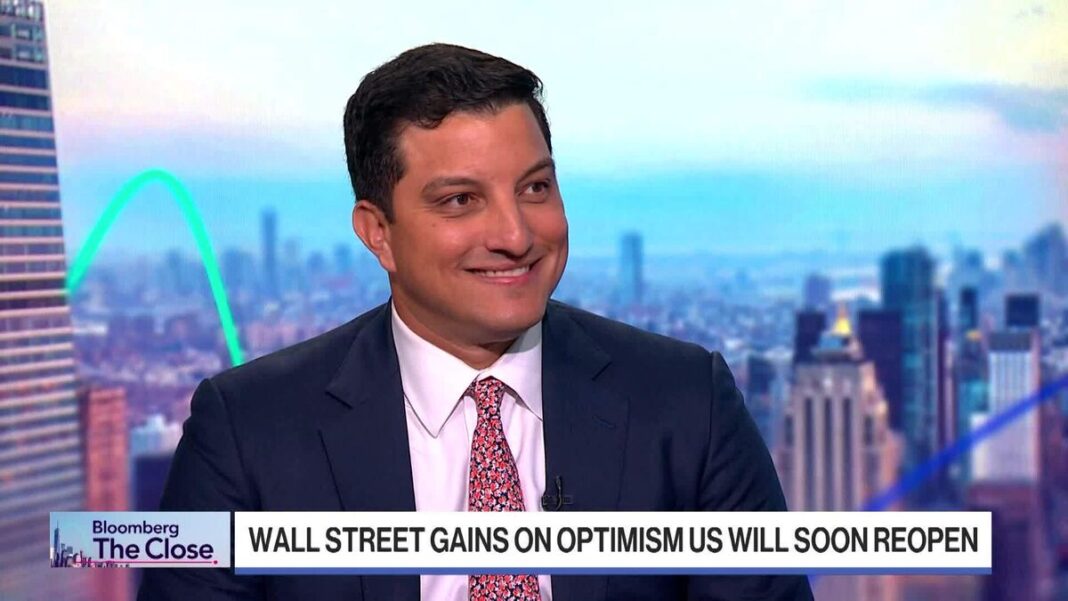Navigating Private Investments: Insights from Raymond James Financial CEO Paul Shoukry
In the ever-evolving landscape of wealth management, financial advisers face not only the challenge of meeting their clients’ immediate needs but also ensuring that any private investments align with their long-term financial goals. Paul Shoukry, CEO of Raymond James Financial, recently emphasized the importance of caution when it comes to private investments in an engaging segment on “Bloomberg The Close.” Let’s explore some of the crucial points he made regarding adviser-client relationships, the impact of artificial intelligence (AI), and the current financial climate shaped by lower interest rates.
The Importance of Alignment in Private Investments
One of Shoukry’s key messages revolved around the necessity for advisers to ensure that private investments resonate with their clients’ financial objectives. Wealth management is not just about generating returns; it’s about understanding individual client needs and risk tolerance. Shoukry pointed out that advisers must carefully curate private investment options, ensuring they don’t stray from their primary objectives. This requires an in-depth understanding of both the investment landscape and the unique financial situations of each client.
Advisers are encouraged to engage in open dialogues with their clients, creating a partnership built on trust and transparency. This isn’t merely a transactional relationship but a collaborative effort where advisers play a pivotal role in guiding clients towards suitable investment opportunities.
Current Sentiment Among Clients and Advisers
In the face of market fluctuations and economic uncertainties, the sentiment among clients and advisers alike has been a significant topic of discussion. Shoukry shared insights into how both groups are feeling amidst the current financial climate. There is a growing awareness and cautious optimism, as many clients seek reassurance about their investments. Meanwhile, advisers feel the pressure to deliver not just in terms of returns, but also in client education and support.
The relationship between client and adviser is more crucial than ever. Advisers must equip themselves with up-to-date information and a strong understanding of market trends, so they can provide sound advice tailored to the specific needs of their clientele. Listening to clients and addressing their concerns can foster a more resilient adviser-client relationship during unpredictable times.
The Role of Artificial Intelligence
Shoukry also touched upon the transformative role of artificial intelligence in wealth management. AI has the potential to enhance the service that advisers provide by offering data-driven insights that help in making informed decisions. This technology can analyze vast amounts of market data quickly, identifying trends and opportunities that might otherwise go unnoticed.
However, Shoukry was clear in stating that while AI can be an invaluable tool, it should not replace the personal touch that human advisers bring to the table. The best results come from blending technology with personalized service to enhance the overall experience for clients. As the financial landscape continues to evolve, advisers must find the right balance between leveraging technology and maintaining human connections.
The Impact of Lower Interest Rates
Shoukry’s discussion also highlighted the current environment of lower interest rates and how it affects both investment strategies and client behaviors. In a low-rate environment, traditional fixed-income investments may yield less favorable returns, prompting clients and advisers to explore alternative options. This could include diversifying portfolios with equities or exploring private investment opportunities that may offer better yields.
For financial advisers, this trend requires a proactive approach. Understanding the implications of lower interest rates on various asset classes and communicating these changes effectively to clients is essential. It’s a time for advisers to adjust strategies and provide innovative solutions that align with clients’ evolving financial objectives, ensuring they are prepared for different market scenarios.
Conclusion
In summary, Paul Shoukry’s insights provide a roadmap for navigating the complexities of wealth management in today’s environment. By prioritizing alignment in private investments, fostering strong client relationships, embracing AI responsibly, and adapting strategies to the realities of lower interest rates, financial advisers can position themselves—and their clients—for success in a dynamic and often unpredictable market.



